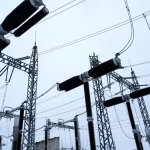The lifting of European Union (EU) sanctions on the Russian Agricultural Bank is a crucial component of the Black Sea truce brokered by U.S. President Donald Trump, Kremlin spokesman Dmitry Peskov stated on Friday morning.
The Russian Agricultural Bank, one of several institutions targeted by European sanctions, plays a key role in processing payments for Russian exports. It was disconnected from the SWIFT payment system, the primary messaging network for international transactions.
Peskov emphasized that if Europe refuses to ease sanctions under the Black Sea initiative, it signals an unwillingness to pursue peace, according to Russian state media reports.
The EU has maintained that sanctions against Russia will remain in place until a lasting peace agreement is reached in Ukraine. European leaders have recently convened multiple high-level meetings to strategize on strengthening Ukraine’s position as negotiations continue.
Russia is pushing for the removal of Western sanctions imposed over its invasion of Ukraine, which have inflicted significant economic hardship. The EU has described its extensive sanctions against Russia as “massive and unprecedented.”
However, these sanctions have become a major hurdle in Trump’s diplomatic efforts to end the war. The president is seeking a swift resolution to prevent further loss of life and reduce the financial burden on American taxpayers, who are funding Ukraine’s defense through military aid.
Earlier this week, the U.S. announced plans to collaborate with Russia to restore its access “to the world market for agricultural and fertilizer exports … and enhance access to ports and payment systems for such transactions.”
The Trump administration reached an agreement with Russia to secure its backing for a 30-day truce in the Black Sea and a temporary ceasefire on energy infrastructure—both of which Ukraine has also approved. However, both sides have accused each other of violating the energy deal.

The Black Sea serves as a vital commercial shipping route, and its disruption during the war initially impacted grain and fertilizer trade. Nevertheless, exports have largely resumed normal operations in recent months.
Despite the ongoing negotiations, European Council President António Costa has reaffirmed that sanctions on Russia must remain in place. Ukrainian President Volodymyr Zelensky has echoed this stance, urging Kyiv’s allies—including the U.S.—to impose even stricter economic measures on Moscow.
On Thursday, António Costa posted on X (formerly Twitter): “The best way to support Ukraine is to stay consistent in our objective to reach a just and lasting peace. This means keeping up the pressure on Russia through sanctions.”
Andrey Sizov of the SovEcon consultancy told Reuters that Russian grain and fertilizer exports from the Black Sea have reached record levels despite the conflict, making a truce unnecessary for continued trade.
“Both Ukrainian and Russian exports from the Black Sea are currently proceeding without significant issues, without an ‘official truce’ and without any ‘grain deals’,” Sizov stated. “The baseline scenario is that exports will continue as they have been.”
Negotiations are ongoing, with further discussions set to take place in Saudi Arabia in mid-April. Technical teams from the U.S., Russia, and Ukraine are working out the specifics of the Black Sea and energy infrastructure ceasefires.
The EU remains firm on maintaining sanctions against Russia until a full peace agreement is reached. Meanwhile, some European nations, including France and the U.K. (which is no longer part of the EU), are reportedly considering deploying peacekeeping forces to Ukraine.
Sanctions are poised to become a major source of tension—not only between Russia and the EU but also between the EU and the U.S.—if they prove to be a significant obstacle to the peace deal Trump is striving to secure.


